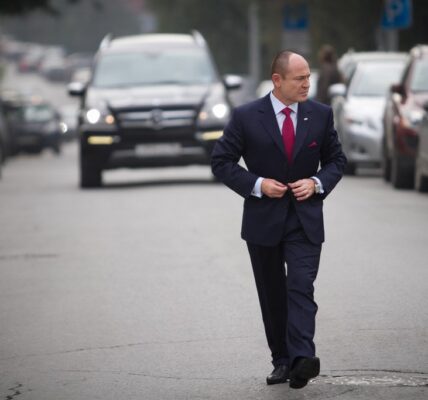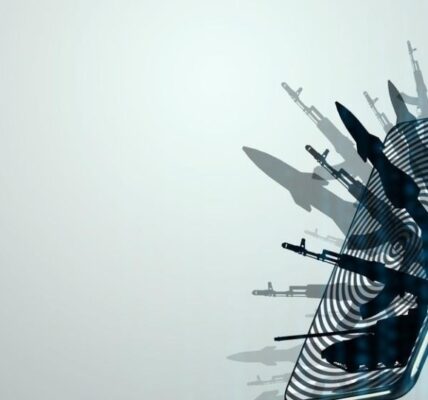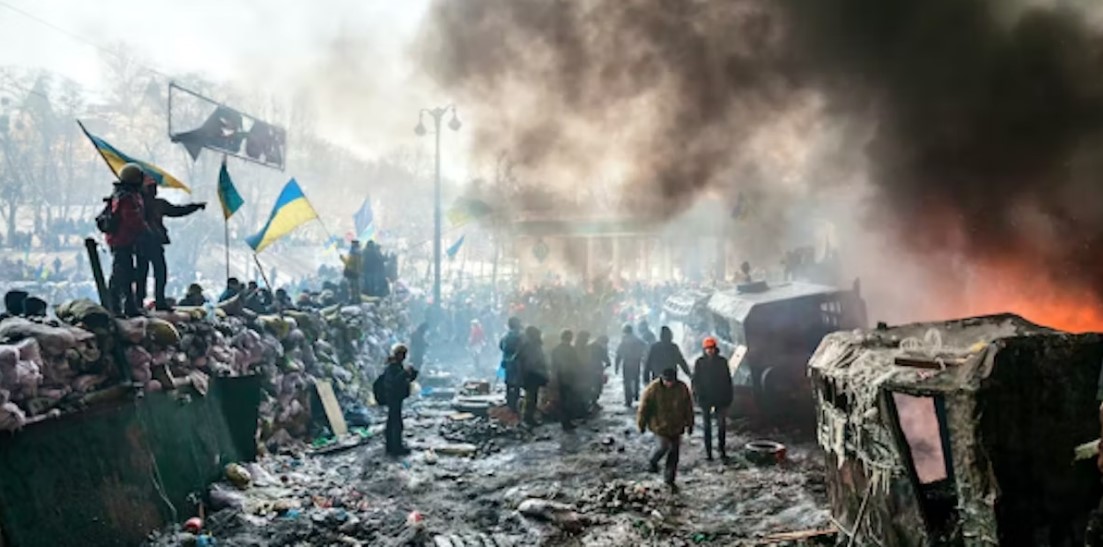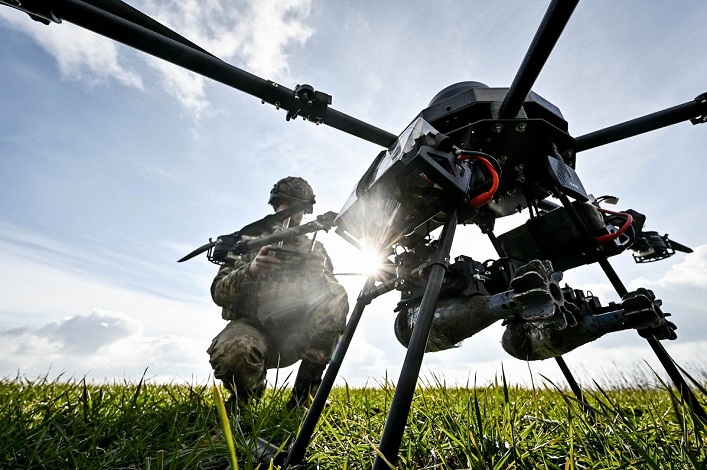
President Vladimir Putin should be allowed a graceful exit from the war in Ukraine, says Rear Admiral Mike Hewitt.
Adm Hewitt, who served in the US Navy for 31-years, emphasised the need to focus not only on what victory looks like for Ukraine but also on what it might look like for Russia. “The reality is there will be no white flag raised in this conflict”.
In an interview with National Security News at the Meridian Space Summit, the admiral said: “We’ve unintentionally boxed Putin in a bit when we talk about regime change.” He noted that discussing regime change is the last thing you want to do with an adversarial leader, especially when that leader is in a situation where he has overplayed his hand and there is a threat of using tactical nuclear weapons.
Adm Hewitt, who is the Co-Founder and CEO of IP3 (International Peace, Power, and Prosperity), an international energy and security company stressed that discussions about peace in Ukraine can’t be a binary conversation.
He added: “Ukraine needs to be returned to their sovereignty, that is clear, and there should be no argument about Crimea. There should be no argument about the eastern border. That being said, it can’t be where there’s a winner and a loser.”
Taking Russia’s frozen assets with no plan for an internationally accepted use of those assets, according to Adm Hewitt, is not the answer. “We’ll bankrupt the country… there are many other, more nuanced approaches to financing the recovery of Ukraine,” he said, that the US is involved in. “But I think allow Putin what I would call a graceful exit,” he said. “If we don’t create that, we’re not going to find an acceptable end state.” Adm Hewitt said the United States should create this graceful exit.
The White House announced on 23 October that Ukraine will receive $50 billion in loans, backed by frozen Russian assets, from the Group of Seven allies. Distribution of the money will begin by the end of year, according to American officials who said the United States is providing $20 billion of the total.
Leaders of the wealthy democracies agreed earlier this year to engineer the loan to help Ukraine in its fight for survival after Russia’s invasion. Interest earned on profits from Russia’s frozen central bank assets would be used as collateral.
President Joe Biden said in a statement: “Ukraine can receive the assistance it needs now, without burdening taxpayers. These loans will support the people of Ukraine as they defend and rebuild their country. And our efforts make it clear: tyrants will be responsible for the damages they cause.”
Ukraine must be resourced for victory
When you talk about peace or a ceasefire, he said, it has to be done recognising what the Ukrainians say to him, “we can’t fix who our neighbours are.” He says the Ukrainians are more strategic about this than they are given credit for.
What is certain, according to the admiral, is that “there is a tremendous amount of attrition right now on the battlefield. We are losing way too many young men and women, and some of the things that I’ve seen on the ground are really terrible in terms of lack of care for the wounded, lack of battlefield medicine, things that we created for Afghanistan and Iraq, they have none of that on either side. So unfortunately, what we’re watching is a massive attrition of young men and women in a kinetic fight that’s not really advancing.”
What the US needs to do, according to Adm Hewitt, is not just to resource Ukraine for the kinetic fight and to continue the war against Russia; Ukraine needs to be resourced for victory. One of the reasons, he said, that Ukraine has been successfully repelling the Russians is not because the US has given them the resources, “because we really hadn’t. We clearly have not given them the authority to win,” he said.
Ukraine is redefining warfare, according to Adm Hewitt. “They have over 700 startups in Ukraine that really came about by necessity. But even before the war, what we saw in Ukraine was a country that had Silicon Valley on steroids, with engineers and smart tech, and all they’ve done is really take that tech and realign it to the purpose of defeating the Russians.”
The domain of space warfare is where cyber was 15 years ago
Adm Hewitt played a role in developing the rules of engagement, permissions, and legal policies of cyber. It involved defining what war fighters can and can’t do in cyber. That is where, he says, we are in the space domain right now, looking to develop rules of engagement in space.
“We’ve got progress with the Artemis Accords being signed. We’ve got lots of excitement about the domain of space, but it also will be a war-fighting environment, one that we’ve already seen the Russians, the Chinese, and even the Americans flex their muscles a bit, going back even 10 or 12 years with anti-satellite weapons demonstrations and postering about space as a war fighting domain.”
He says he wants the space domain to be the same as the other domains so that air warfare, subsurface warfare, land warfare, and cyber warfare are all defined by the same vernacular.
“When I look at the space domain, I see a very similar model. We need to really start to think about what the rules of engagement are. How are they impacted? How are they impacted by treaties such as the Hague Convention, the Geneva Convention, NATO? These are all things that we need to sit down and start to operationally discuss in the next year or two.”
The Russians, he said, are writing their own doctrine for space, “and we need to understand what muscles they’re going to flex at the UN Security Council.”
We’re no longer a generation ahead of the Chinese
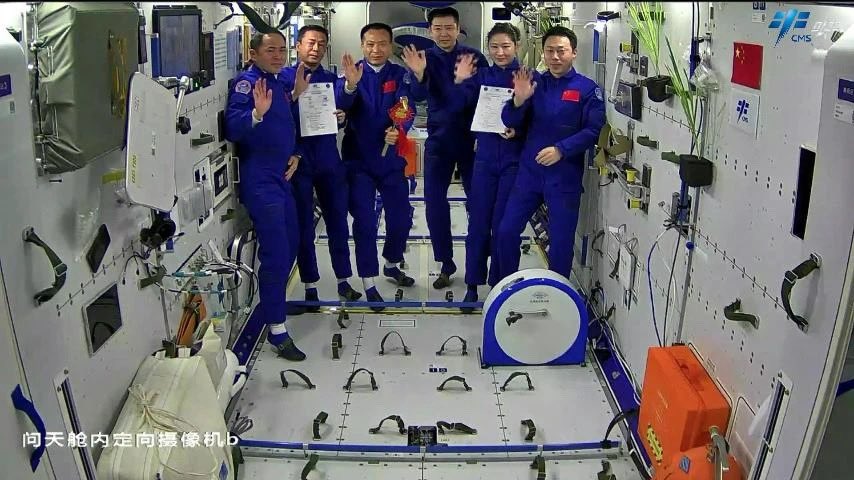
The US, he said, used to maintain what was termed as an Offset Strategy where it always was a generation ahead of the Chinese. That is no longer the case, he said. China has caught up in almost every advanced technology out there and have really moved ahead of the US in many areas.
“We’re no longer a generation ahead of the Chinese in space, in cyber, in deep neural nets and hyper sonics and many of these different domains that we used to have the high ground in; they now have caught up to us, and their track record shows that they will operate in less than a peaceful manner with these domains.”
The US needs to think about how it can use space in a conflicts
While it is important to think of diplomacy and how nations can work harmoniously in space, Adm Hewitt believes that diplomacy is just one element of space. We need to think of the downside, he said, “the potential for using space in a military campaign.” “We need to be in those conversations as well, because certainly the Russians and the Chinese are, and so what I see is a tipping point in this domain by which you’d actually organise ourselves better than we ever did in cyber.”
Adm Hewitt says space can do unbelievable things for mankind but “we also need to understand how we can use it potentially against our adversaries in a conflict. It is a negative side, but it’s something that we have to be thinking about because our adversaries certainly are.”


